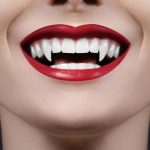Excited Dog? Here’s Why They Chatter Their Teeth Expert Explanation
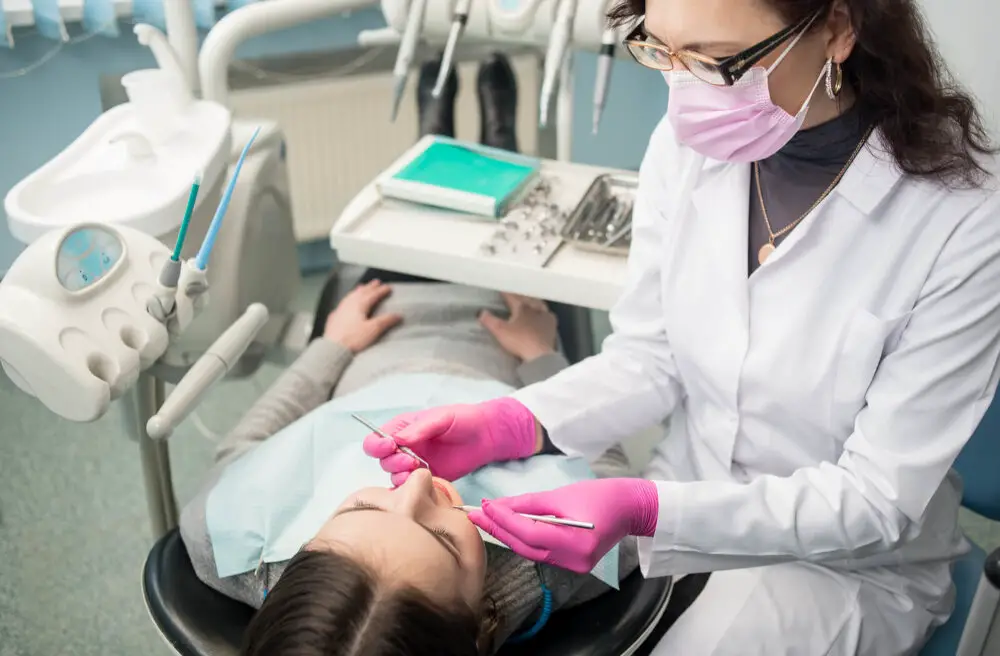
Dogs are known for their enthusiastic and energetic nature, and they often express their excitement in unique ways. One such behavior that may leave some pet owners puzzled is teeth chattering. If you’ve ever seen your furry friend’s teeth chattering away, you might wonder what’s causing their jaws to vibrate. While it may seem like a cause for concern, teeth chattering in dogs is a common behavior that can indicate a range of emotions. In this article, we’ll delve into the reasons why dogs chatter their teeth and what it could mean for your pet. From excitement to anxiety, teeth chattering is a fascinating behavior that can tell us a lot about our furry friends’ emotional state. As an expert in animal behavior, I’ll provide you with a comprehensive explanation of this intriguing behavior, so you can better understand your pup and their needs. So, let’s dive in and explore the world of teeth chattering in dogs.
Dogs are known to chatter their teeth when they get excited as a form of physical expression. This behavior is commonly observed in situations where the dog is anticipating something exciting, like going for a walk or playing with their favorite toy. The excitement triggers the dog’s nervous system, which can cause their teeth to chatter uncontrollably. This reaction is similar to the way humans might shake or shiver when they are excited or nervous. Additionally, chattering teeth can also be a sign of anxiety or fear in some dogs, so it is important to pay attention to other body language cues to understand the underlying emotions behind the behavior.
It’s common for people to misunderstand the reasons behind a dog’s excited chattering of teeth. Many assume that it’s a sign of aggression or fear, but this is far from the truth. In fact, dogs often chatter their teeth when they’re happy and excited, such as when they’re playing with their favorite toy or eagerly anticipating a treat. This behavior is known as \playful chattering\ and is a natural way for dogs to release their excitement and enthusiasm. It’s important for owners to recognize this behavior and respond accordingly, as punishing a dog for chattering its teeth can lead to confusion and anxiety. By understanding and embracing this unique behavior, dog owners can strengthen their bond with their furry friend and enjoy many happy moments together.
What is teeth chattering in dogs?

Teeth chattering is a common phenomenon observed in dogs that indicates their excitement or anticipation. It is a rapid and rhythmic movement of their jaws, which produces a clattering sound. Dogs tend to chatter their teeth in response to various stimuli, such as the arrival of their owners, the prospect of going for a walk, or the sight of a favorite toy. It is usually accompanied by other signs of excitement, such as wagging of the tail, jumping, or licking. Some dogs may also display teeth chattering when they are anxious or stressed, such as during a visit to the vet or encountering a new situation. While the exact reason for teeth chattering in dogs is not fully understood, it is believed to be a form of nervous energy discharge. Dogs have a lot of energy and excitement that they need to release, and teeth chattering is one way they do it. It is also thought to be a sign of anticipation and eagerness, as dogs often chatter their teeth when they are looking forward to something exciting. Additionally, teeth chattering may be a way for dogs to communicate with their owners or other dogs, indicating their emotional state and intentions. Overall, teeth chattering is a fascinating and intriguing behavior in dogs that reveals a lot about their inner world and personalities.
Teeth chattering is a common behavior in dogs that can be observed when they are excited or anxious. This behavior is characterized by the rapid clacking of the teeth, which can produce a distinct sound. It is believed that teeth chattering is a way for dogs to release excess energy and excitement, much like shaking off after a bath. Some dogs may also chatter their teeth when they are feeling cold or experiencing pain, so it is important to observe other body language and behavior to determine the underlying cause. Overall, teeth chattering is a normal and harmless behavior in dogs that can add to their unique personalities and quirks.
When a dog is excited, it may start to chatter its teeth, which is a behavior that can be easily confused with shivering due to cold. However, chattering is a deliberate movement of the jaw and not a reflexive response to temperature changes. In comparison to human teeth chattering, which is often associated with extreme cold, dog teeth chattering is a sign of happiness or excitement. It is also a way for dogs to communicate their emotions and can be seen as a form of body language. While it may appear unusual to humans, it is a perfectly normal behavior in dogs and can even be considered cute by many pet owners.
What causes teeth chattering in dogs?
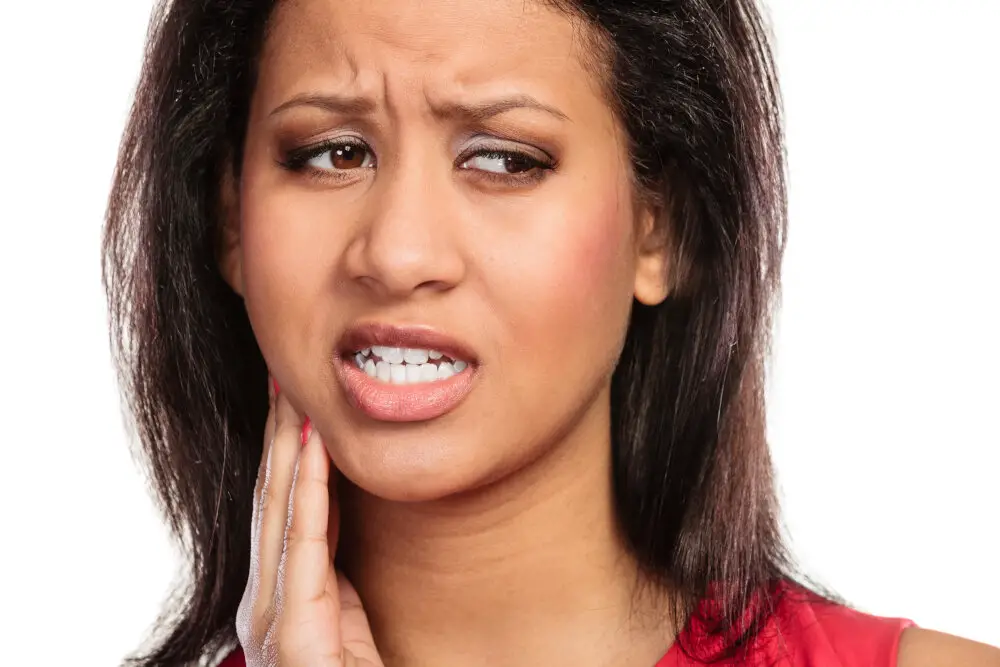
Teeth chattering in dogs is a common phenomenon that can occur due to various reasons. One of the most common causes of teeth chattering in dogs is excitement. Dogs can get excited about many things, such as seeing their owners after a long time, hearing the sound of a treat jar, or even when they are about to go out for a walk. This excitement can cause the muscles in their jaw to tense up, resulting in teeth chattering. While this is generally a harmless behavior, it is important to note that excessive teeth chattering can be a sign of anxiety or stress in dogs. Another cause of teeth chattering in dogs is cold or shivering. Just like humans, dogs can also feel cold, especially during the winter months. When they are cold, their teeth may start to chatter as a result of the shivering. This behavior is a natural way for dogs to warm up their bodies, and it is usually nothing to worry about. However, if your dog is shivering excessively, it may be a sign that they need to be taken to a warmer place or given a blanket to keep them warm. Additionally, if your dog’s teeth chattering is accompanied by other symptoms such as lethargy or loss of appetite, it is important to consult with a veterinarian to rule out any underlying health issues.
Dogs are known for their various forms of communication, and one of the most fascinating but often misunderstood behaviors is teeth chattering. There are several reasons why dogs chatter their teeth, and one of the most common causes is excitement. When dogs are thrilled or anxious, they may chatter their teeth as a way of releasing the energy and expressing their intense emotions. Additionally, dental problems, such as misaligned teeth or gum disease, may cause teeth chattering in dogs, while other underlying medical conditions like seizures or tremors may also be the root cause. Observing your dog’s body language and consulting with a veterinarian can help determine the cause of teeth chattering and provide effective solutions.
When a dog becomes excited, their nervous system goes into overdrive. The link between excitement and the dog’s nervous system is complex and fascinating. It involves the release of neurotransmitters such as dopamine and norepinephrine, which activate the dog’s sympathetic nervous system, triggering a cascade of physiological responses. This can include increased heart rate, rapid breathing, and the release of adrenaline. These changes can cause a dog’s teeth to chatter as their muscles tense up. It’s important to remember that not all dogs will chatter their teeth when excited, and that this behavior can also be a sign of anxiety or fear. Understanding the connection between excitement and the nervous system can help us better understand our furry friends and provide them with the care and attention they need.
How to identify the reason for teeth chattering in dogs?

Teeth chattering is a common behavior in dogs, and it can occur due to various reasons. As an owner, it is essential to identify the cause of this behavior to ensure that your dog is healthy and happy. The most common reason for teeth chattering in dogs is excitement. When dogs are excited, they tend to chatter their teeth as a way of expressing their emotions. This behavior is usually accompanied by other signs of excitement such as wagging tails, jumping, and barking. If your dog is chattering their teeth due to excitement, you don’t need to worry as it is a normal behavior. Another reason for teeth chattering in dogs is anxiety or fear. Dogs that are nervous or frightened may chatter their teeth as a way of coping with their emotions. This behavior is usually accompanied by other signs of anxiety such as shaking, panting, and hiding. If you suspect that your dog is chattering their teeth due to anxiety or fear, it is essential to identify the source of their distress and address it accordingly. It is also important to ensure that your dog feels safe and comfortable in their environment to prevent anxiety and fear-related behaviors such as teeth chattering.
When trying to determine why a dog is chattering its teeth, there are some signs to look for. One possible reason for teeth chattering is excitement, which can be indicated by a wagging tail, raised ears, and an alert gaze. Another possibility is anxiety, which may be accompanied by trembling, panting, and a lowered tail. Teeth chattering can also be a response to pain, such as dental issues or a sore jaw, in which case the dog may avoid eating or show signs of discomfort when chewing. It’s important to observe the dog’s behavior and overall demeanor to get a better understanding of why they might be chattering their teeth. Consulting with a veterinarian may also be helpful in ruling out any underlying medical issues.
Observing a dog’s body language is crucial for understanding their behavior and emotions. Dogs communicate through body language, and it is essential to understand what they are trying to convey to avoid any miscommunication or misinterpretation. For instance, a wagging tail does not always indicate happiness, and a crouched or tucked tail may indicate fear. Similarly, bared teeth may indicate aggression, and a relaxed posture may indicate calmness. Therefore, it is necessary to pay attention to a dog’s body language to gauge their emotions accurately, respond accordingly, and prevent any potential danger. In the case of an excited dog, observing their body language can lead to an expert explanation of why they chatter their teeth, which can help pet owners understand their dog’s behavior better and provide appropriate care.
Is teeth chattering in dogs always a good sign?
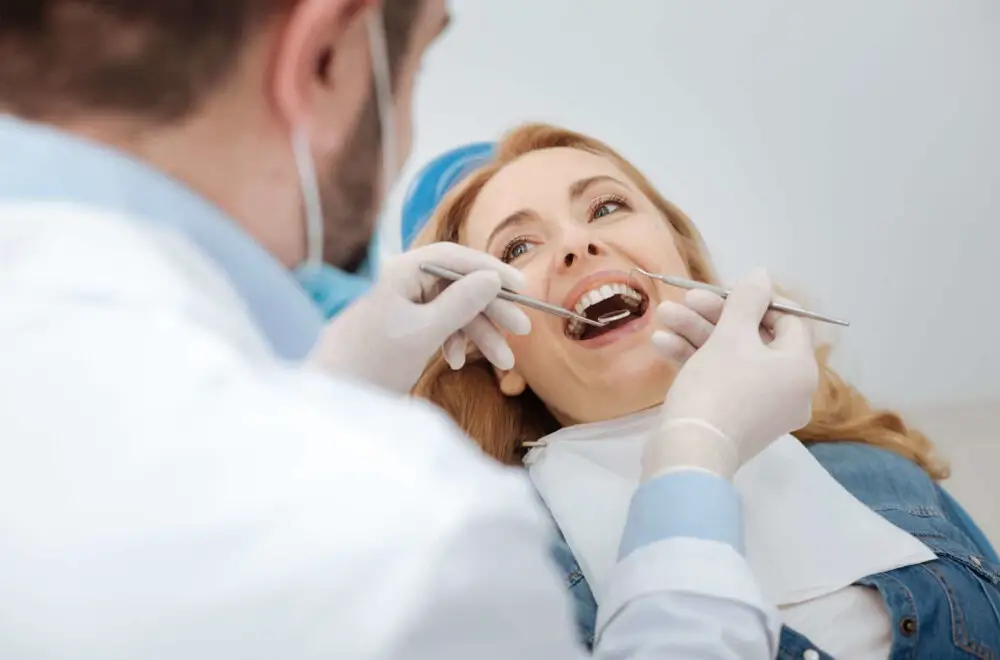
Teeth chattering in dogs can be a sign of excitement, anxiety, or even pain. It is not always a good sign, and pet owners should observe their dog’s behavior to determine the underlying cause. If your dog is chattering its teeth while wagging its tail and showing other signs of excitement, such as jumping up and down or running around, then it is likely a positive sign. However, if your dog is chattering its teeth while cowering or showing signs of fear, then it may be a sign that your dog is experiencing anxiety or stress. Additionally, teeth chattering in dogs can also be a sign of pain. If your dog is older and has arthritis or other joint issues, they may chatter their teeth due to discomfort. Similarly, dental issues can also cause teeth chattering in dogs. If you notice your dog’s teeth chattering frequently or accompanied by other signs of discomfort, such as limping or whining, it is important to take them to the vet for a check-up. Overall, teeth chattering in dogs can be a complex behavior that requires careful observation and attention to your dog’s overall behavior and health.
Although teeth chattering in dogs can be a sign of excitement or anticipation, it can also indicate underlying health issues. Dental problems, such as pain or inflammation, can cause a dog to chatter its teeth in an attempt to alleviate discomfort. Additionally, the behavior may be a symptom of a more serious issue, such as a neurological disorder or seizure. If a dog is consistently chattering its teeth, it is important to consult with a veterinarian to rule out any potential health concerns. Ignoring this behavior could lead to further health complications and discomfort for the dog.
As the article explains, a dog chattering their teeth can be a sign of excitement or anticipation. However, it is important to note that this behavior can also indicate anxiety or fear. If a dog is chattering their teeth while also exhibiting other signs of stress, such as panting or pacing, it may be a signal that they are uncomfortable with their current situation. It is important for owners to pay attention to their dog’s body language and behavior to determine if they are truly excited or if there is an underlying issue that needs to be addressed. If the behavior is persistent and accompanied by other signs of distress, it may be necessary to consult with a veterinarian or animal behaviorist to ensure the dog’s well-being.
In the article \Excited Dog? Here’s Why They Chatter Their Teeth – Expert Explanation,\ the author explains that dogs who chatter their teeth are often experiencing excitement or anticipation. This behavior is known as \chattering\ or \chittering,\ and it can be caused by a surge of adrenaline or dopamine in the dog’s system. The author notes that this behavior is different from teeth chattering due to cold or fear, as excited chattering is often accompanied by other signs of excitement such as wagging tails and bouncing movements. Additionally, the author suggests that dogs may have evolved this behavior as a way to communicate excitement or anticipation to their human companions. Overall, the article provides a fascinating and informative look at a common but often misunderstood behavior in our furry friends.
It is imperative for both dog owners and professionals to understand the significance of teeth chattering in dogs, especially when the reason behind it is excitement. Teeth chattering is a behavioral response of dogs when they are overstimulated, anxious, or excited. Owners should be able to recognize this behavior and understand that it may indicate the dog’s need for a break or some calmness. Professionals who work with dogs, such as trainers, groomers, and veterinarians, should also be aware of teeth chattering as a sign of a dog’s emotional state. Neglecting this behavior may lead to a misunderstanding of the dog’s needs, causing further anxiety and stress. Therefore, education on the importance of teeth chattering in dogs is essential for the well-being of our furry friends.
If you are concerned about your dog’s behavior, it is important to seek professional help from a certified dog behaviorist or veterinarian. While some behaviors may seem harmless, they could actually be symptoms of a larger issue that needs to be addressed. It is essential to take action before any potential problems escalate and to get the help you need to ensure your dog is healthy and happy. By seeking professional help, you can work with an expert to identify any underlying issues and develop a customized plan to address them effectively. Don’t hesitate to reach out for help if you have any concerns about your dog’s behavior.
Conclusion
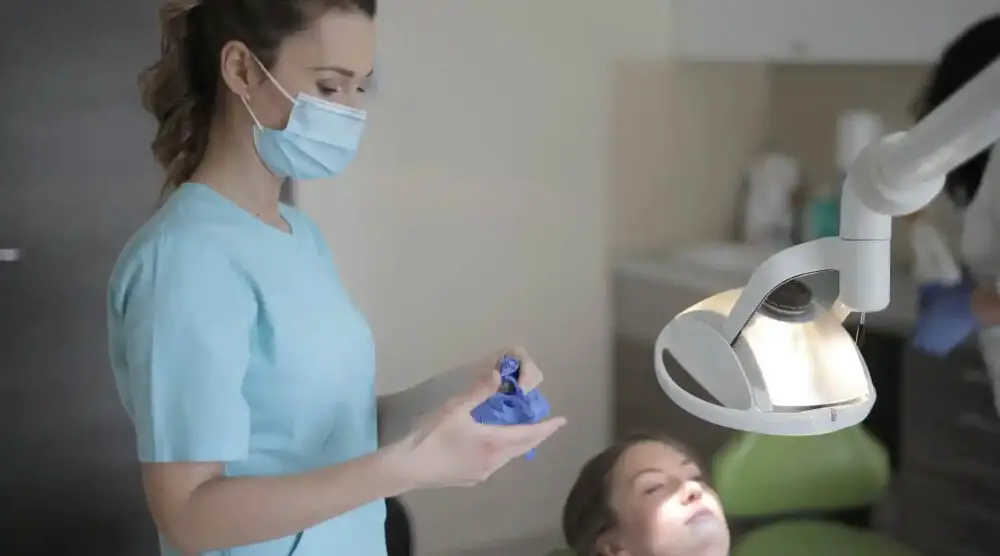
In conclusion, understanding why dogs chatter their teeth when they are excited is a fascinating insight into their behavior. It is a unique way for them to express their enthusiasm and is often accompanied by other signs of excitement such as wagging tails and jumping around. By recognizing this behavior, we can better understand and communicate with our furry companions. It is essential to remember that every dog is different, and their body language may vary, so it is crucial to observe and learn their individual behaviors. Overall, being aware of this fascinating behavior can deepen our bond with our furry friends and enhance our understanding of them.

